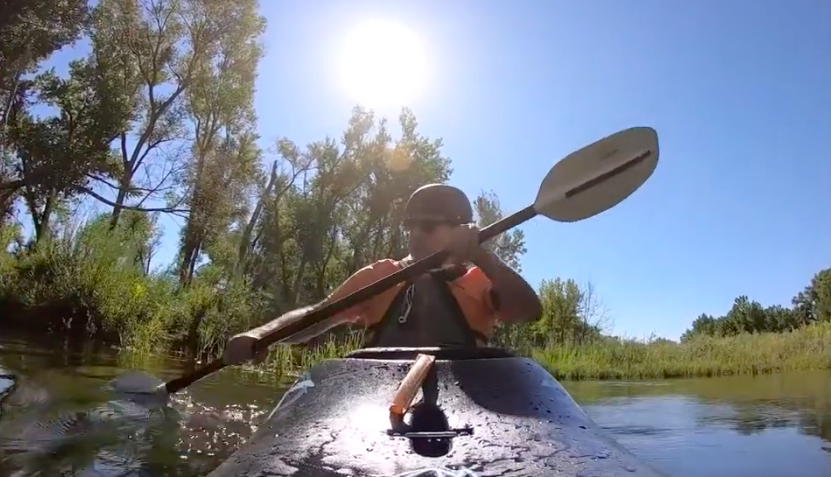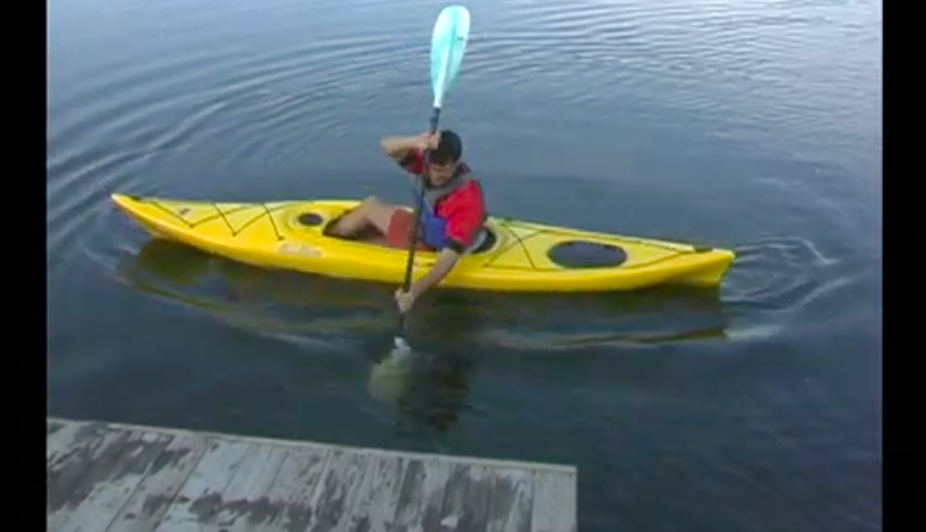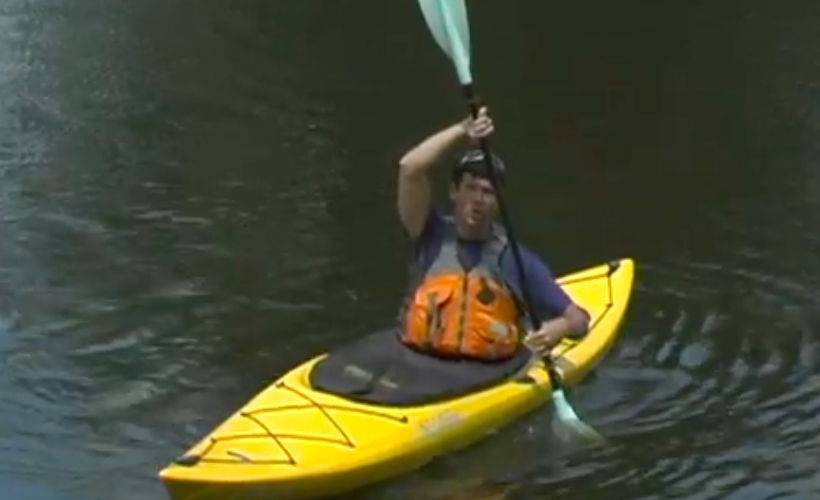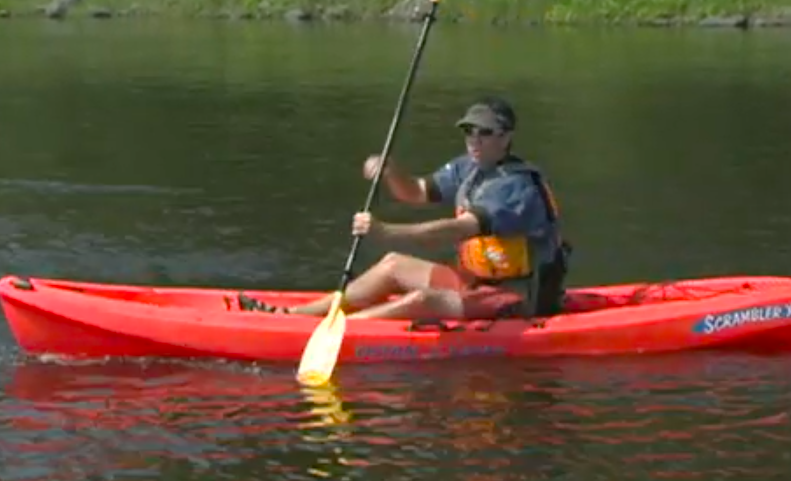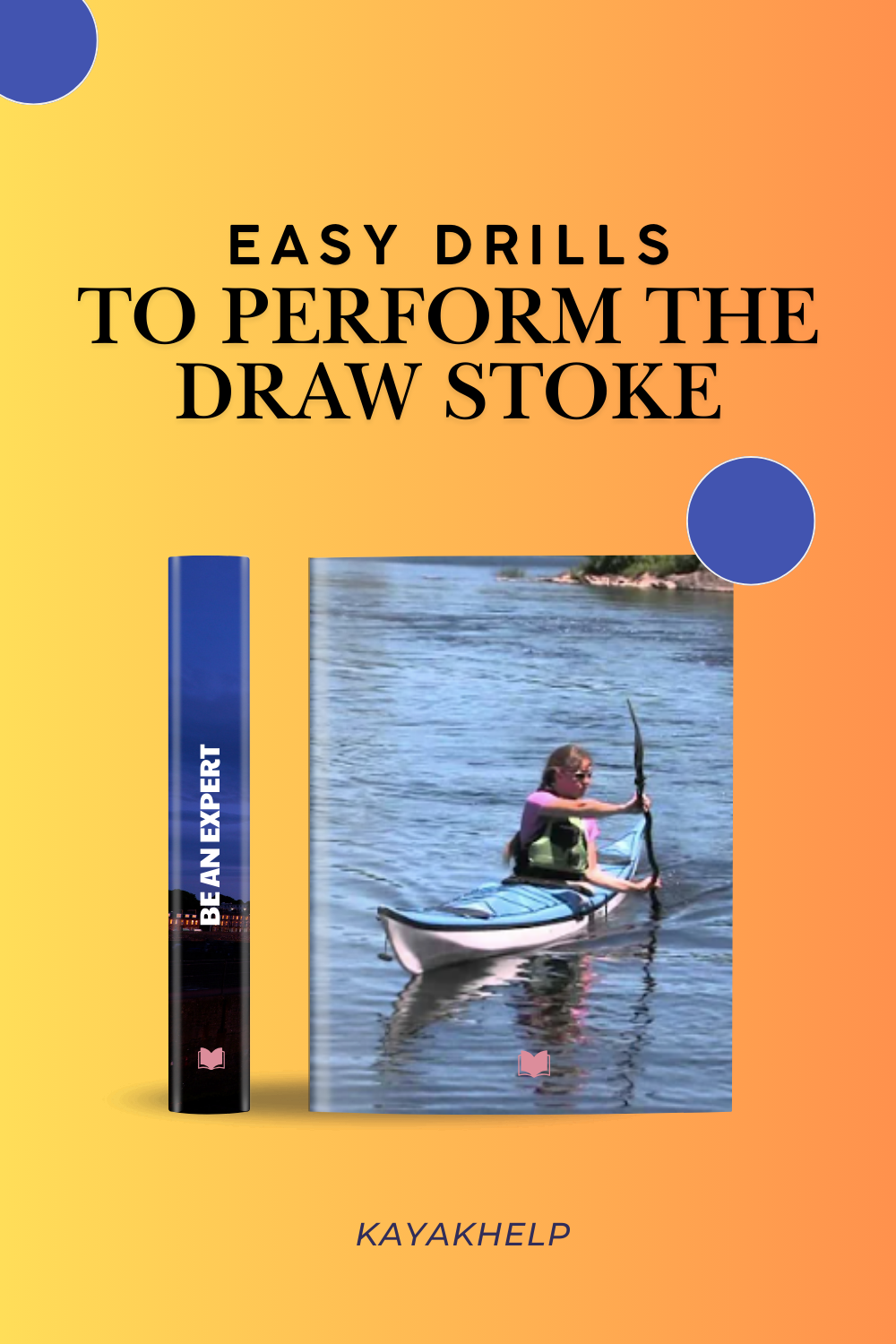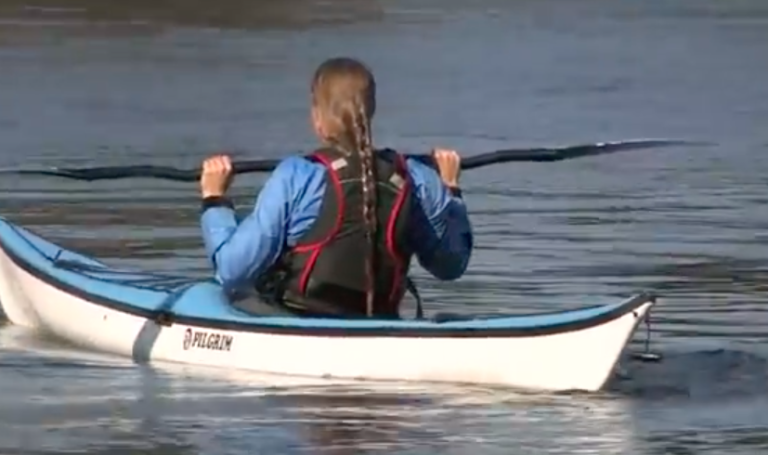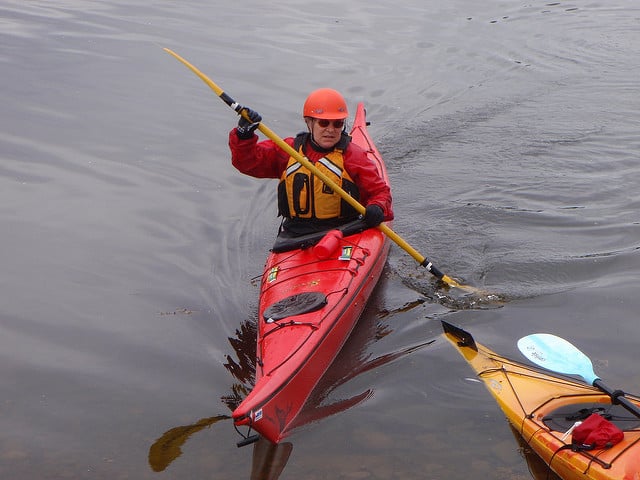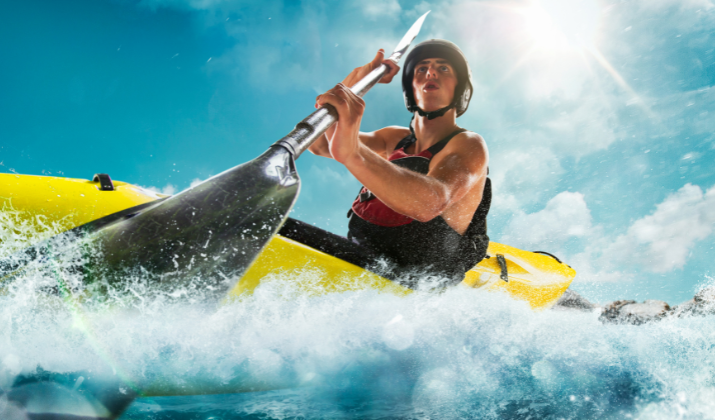The draw stroke is a fundamental technique in kayaking that allows paddlers to move their boat sideways through the water.
Whether you’re navigating tight spaces, approaching a dock, or positioning yourself in rapids, mastering the draw stroke is crucial for precise boat control.
This blog post will explore the draw stroke, its variations, and how to execute it effectively.
Without much ado, let’s begin.
What is a Draw Stroke?
A draw stroke is a kayaking technique used to move the boat laterally (sideways) through the water.
It’s performed by reaching out to the side with your paddle, placing it in the water, and pulling the water towards your boat.
This action creates a force that moves your kayak sideways without changing its forward or backward orientation.
Why Must You Learn The Draw Stroke?
The draw stroke is essential for several reasons:
- Maneuverability: It allows you to navigate tight spaces and make precise movements.
- Positioning: Useful for lining up with docks, other boats, or specific features in whitewater.
- Safety: Helps avoid obstacles or dangerous situations quickly.
- Versatility: Can be combined with other strokes for advanced kayaking techniques.
How Do You Perform a Basic Draw Stroke?
Follow the following steps to execute a basic draw stroke.
- Rotate your torso towards the side you want to move.
- Extend your paddle out to that side, keeping it vertical.
- Submerge the blade fully in the water.
- Pull the blade towards your boat, keeping it parallel to the kayak.
- As the blade nears the boat, rotate it to slice through the water (to avoid pushing the boat back).
- Return to the starting position and repeat as necessary.
What Are the Common Variations of the Draw Stroke?
- Sculling Draw: A continuous back-and-forth motion of the paddle blade, useful for maintaining a sideways motion or making fine adjustments.
- Hanging Draw: Holding the paddle vertically in the water to create continuous sideways movement, often used in moving water.
- Bow Draw (or Duffek Stroke): A forward-angled draw stroke used to turn the kayak quickly while maintaining forward momentum.
How Can You Improve Your Draw Stroke Technique?
To master any skill, you need to practise. Follow these to improve the execution of the draw stroke.
- Practice proper body rotation to engage your core muscles.
- Focus on keeping your paddle vertical during the stroke.
- Experiment with blade angle and depth to find the most effective pull.
- Practice in calm waters before attempting in more challenging conditions.
- Combine draw strokes with forward and reverse strokes for smoother transitions.
What Are Some Common Mistakes to Avoid?
Most new kayakers trying to learn the skill make these mistakes. Be wary of the following if you’re serious about it.
- Leaning too far to the side, which can destabilize the kayak.
- Using only arm strength instead of engaging core muscles.
- Keeping the paddle too close to the boat, reducing the stroke’s effectiveness.
- Failing to adjust the technique for different water conditions or kayak types.
Conclusion
The draw stroke is a versatile and essential technique for any kayaker.
By understanding its mechanics, practicing regularly, and exploring its variations, you can significantly improve your boat control and overall kayaking experience.
Remember that mastering the draw stroke takes time and patience, but the resulting precision and maneuverability are well worth the effort.
As you continue to develop your skills, you’ll find that the draw stroke becomes an intuitive part of your paddling repertoire, enhancing your confidence and capabilities on the water.

